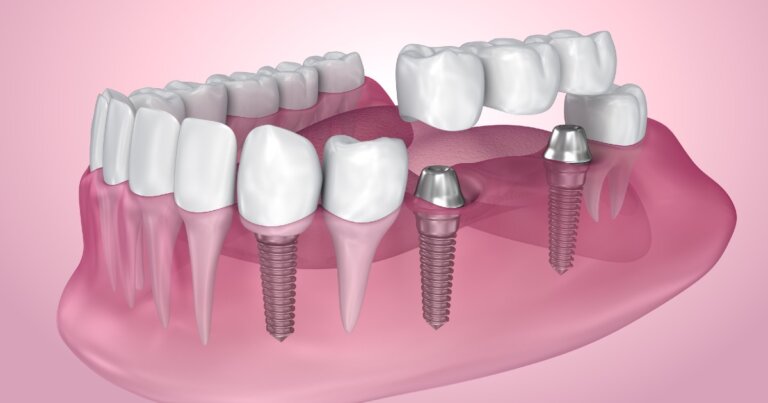In today’s world, a confident smile can open doors and create lasting impressions. However, dental issues such as missing teeth can impact not only your appearance but also your oral health. Fortunately, dental bridge services offer a reliable solution to restore your smile and confidence. In this article, we delve deep into the realm of dental bridges, exploring their types, benefits, and essential aftercare tips.
Understanding Dental Bridge Services
Dental bridges serve as prosthetic devices designed to bridge the gap created by missing teeth. They consist of one or more artificial teeth, known as pontics, which are anchored in place by adjacent natural teeth or dental implants. These bridges are custom-made to fit seamlessly into your mouth, restoring both the aesthetics and functionality of your smile.
Types of Dental Bridges
Traditional Dental Bridges
Traditional bridges are the most common type, comprising one or more pontics held in place by dental crowns.
Cantilever Bridges
Cantilever bridges are similar to traditional bridges but are supported by a single natural tooth or implant on one side of the gap. They are ideal for areas of the mouth with fewer teeth.
Maryland Bonded Bridges
Also known as resin-bonded bridges, Maryland bonded bridges use a metal or porcelain framework bonded to the back of adjacent teeth. They are a conservative option, requiring minimal alteration of the natural teeth.
Benefits of Dental Bridge Services
Restored Smile
Dental bridges effectively fill in gaps left by missing teeth, restoring the appearance of a complete and natural smile. This enhancement can boost confidence and self-esteem, allowing individuals to smile freely without hesitation.
Improved Chewing and Speech
Missing teeth can hinder proper chewing and speech articulation. By replacing missing teeth with dental bridges, individuals can enjoy improved chewing efficiency and clearer speech, enhancing overall oral function.
Prevents Teeth Shifting
When a tooth is lost, the surrounding teeth may gradually shift out of alignment, leading to bite problems and potential dental issues. Dental bridges help maintain the proper positioning of teeth, preventing shifting and preserving oral health.
Aftercare Tips for Dental Bridges
Maintaining proper oral hygiene is essential for prolonging the lifespan of dental bridges and ensuring optimal oral health. Here are some aftercare tips to keep your dental bridges in top condition:
- Regular Brushing and Flossing: Brush your teeth twice daily and floss at least once a day to remove plaque and food debris around the bridge and natural teeth.
- Avoid Hard Foods: Steer clear of hard or sticky foods that could damage the dental bridge or dislodge it from its position.
- Routine Dental Visits: Schedule regular dental check-ups and cleanings to monitor the condition of your dental bridge and address any issues promptly.
- Use Fluoride Products: Incorporate fluoride toothpaste and mouthwash into your oral hygiene routine to strengthen the enamel and prevent tooth decay.
Dental Bridge Services: Restoring Confidence and Functionality
Missing teeth shouldn’t hold you back from smiling with confidence. With advanced dental bridge services, you can reclaim your smile and enjoy improved oral function. Whether you opt for traditional, cantilever, or Maryland bonded bridges, restoring your smile is within reach.
FAQs (Frequently Asked Questions)
- How long do dental bridges last? Dental bridges typically last between 5 to 15 years, depending on various factors such as oral hygiene practices, diet, and the material used.
- Are dental bridges painful to install? The procedure for installing dental bridges is minimally invasive and performed under local anesthesia, ensuring a comfortable experience for the patient.
- Can anyone get dental bridges? While dental bridges are a suitable option for many individuals with missing teeth, a thorough dental evaluation is necessary to determine candidacy and the most appropriate treatment plan.
- Is maintenance required for dental bridges? Yes, routine maintenance is essential to ensure the longevity and functionality of dental bridges. This includes regular dental check-ups, oral hygiene practices, and avoiding habits that could damage the bridge.
- Can dental bridges feel natural? With advancements in dental technology and materials, modern dental bridges are designed to look and feel natural, providing a comfortable and seamless fit within the mouth.
- What is the cost of dental bridge services? The cost of dental bridge services varies depending on factors such as the type of bridge, the number of pontics, and additional procedures required. It’s best to consult with your dentist for a personalized cost estimate.
Conclusion
Dental bridge services offer a transformative solution for individuals with missing teeth, restoring both aesthetics and functionality to their smile. By exploring the different types of bridges, understanding their benefits, and adopting proper aftercare practices, you can embark on a journey towards a brighter, more confident smile.
